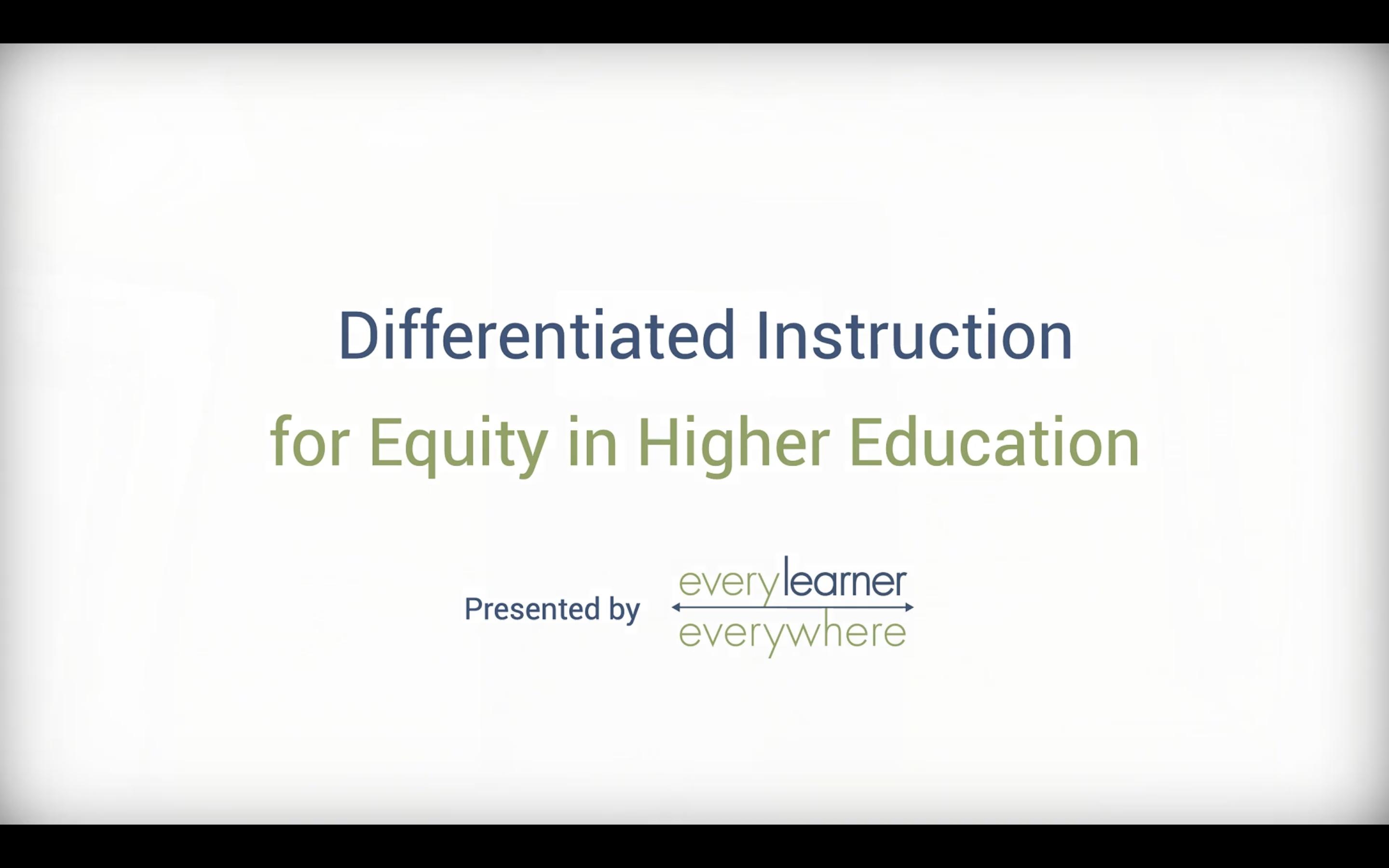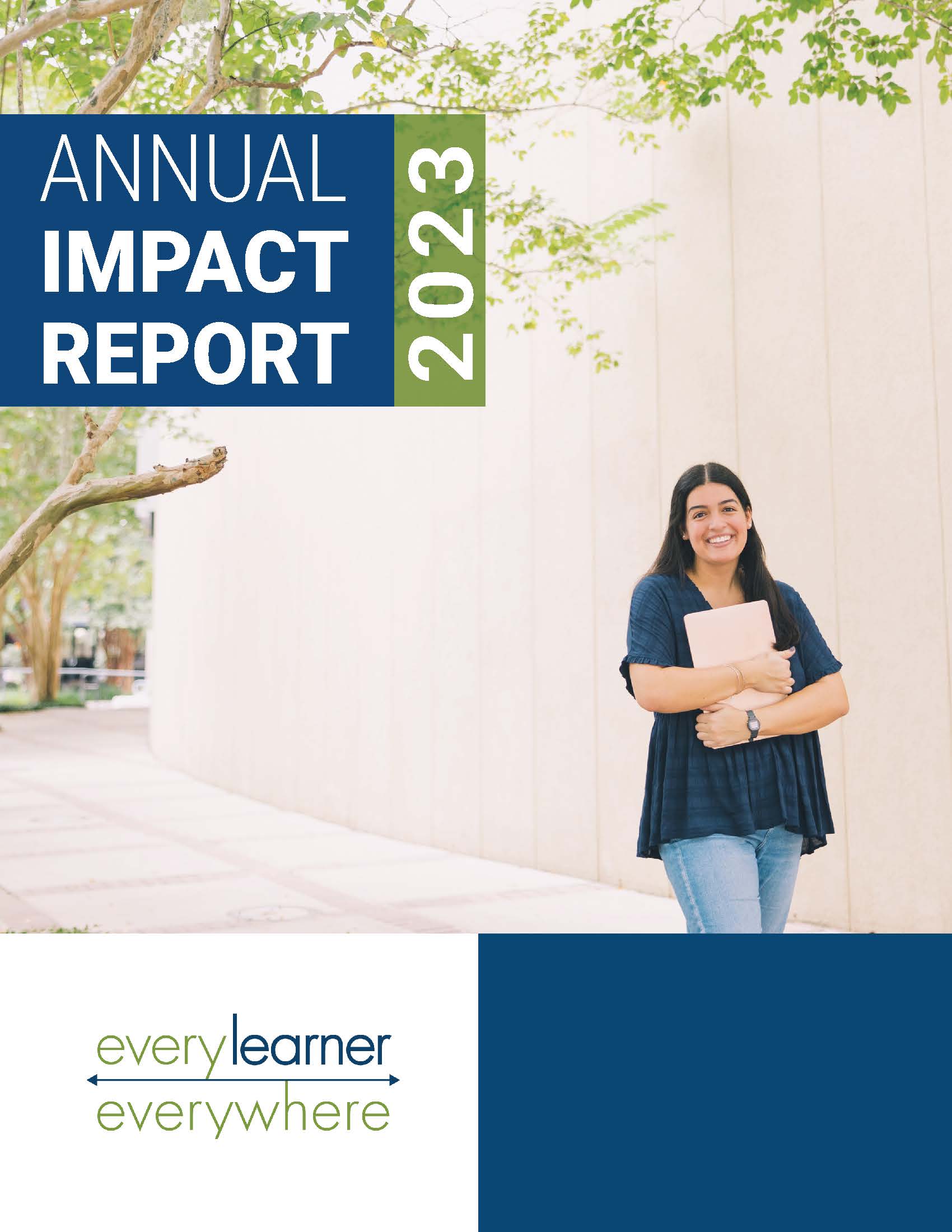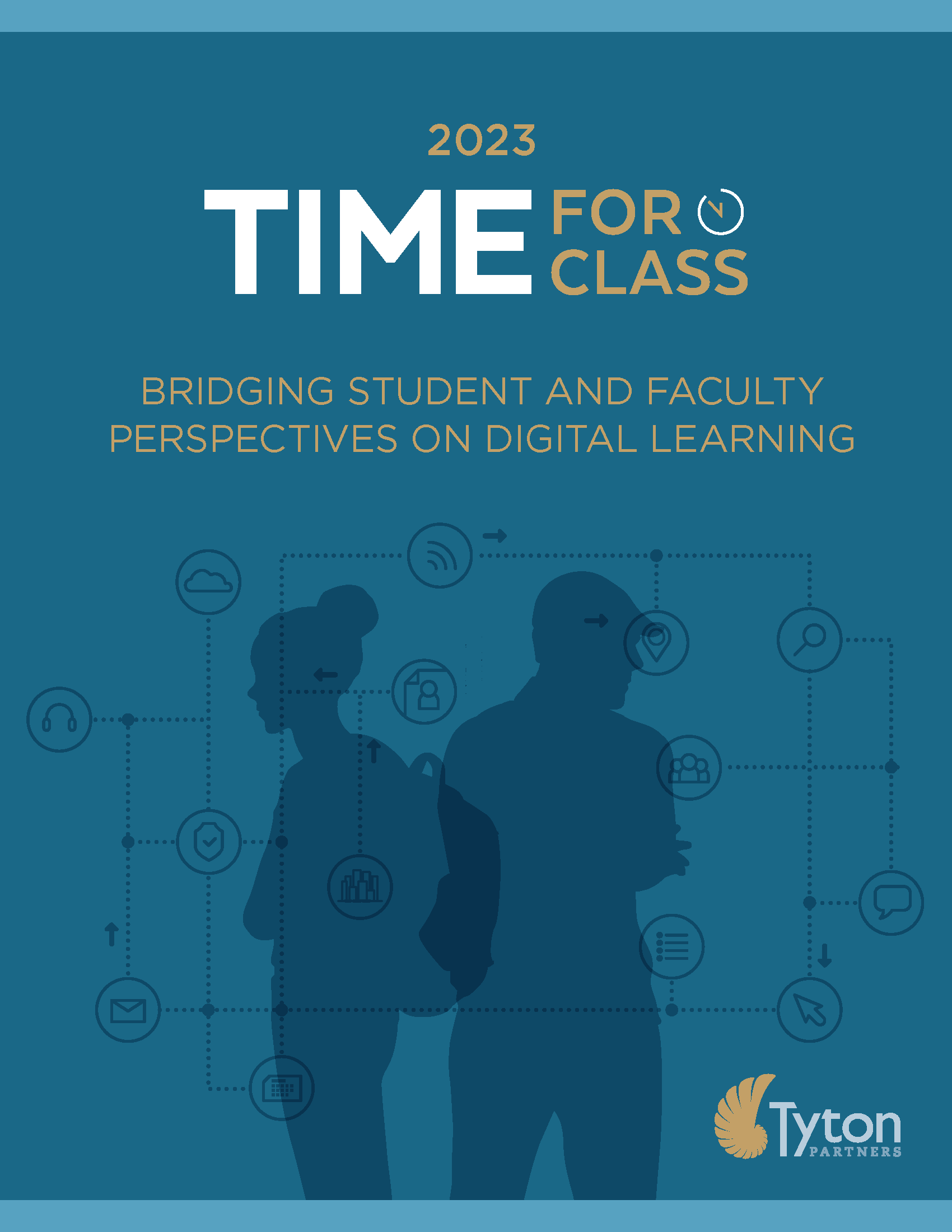Through intentionally equitable and inclusive practices in higher education, such as Differentiated Instruction, instructors play a crucial role in improving learning outcomes and increasing course completion and graduation rates for students who have historically and systematically faced barriers to an equitable education. Educators are encouraged to get to know their students individually and, while designing courses, align lessons according to academic strengths and needs, interests, and circumstances. By differentiating the content, process, and products for each student, faculty can meet learners where they are and optimally support their comprehension and attainment of course goals. This video will provide an introduction to differentiated instruction so that you can enhance the quality of your learning environment and enable every learner to engage in relevant and meaningful education.
Recommended citation:
Every Learner Everywhere (2020, June 25) Differentiated Instruction for Equity in Higher Education [Video] Every Learner Everywhere
Other Related Resources
February 2024
In this report, you can read about the network’s impact in the areas of services, thought leadership, and student engagement. In addition, we recap our 2023 network convening, introduce our new Equity First Organization partners, feature some of our student interns, and give readers a preview of what’s ahead for the network in 2024.
August 2023
This guide presents results from an analysis of 100 academic continuity plans at U.S. colleges and universities. The results form the basis for recommended academic continuity plan best practices, tools, and templates academic leaders can use to maintain a plan that can be used in both short-term and long-term circumstances.
June 2023
This 2023 study – the largest and longest running study monitoring digital learning in higher education – aims to identify the differences between student and institutional stakeholder experiences and preferences to suggest ways institutions and solution providers can address these differences.






